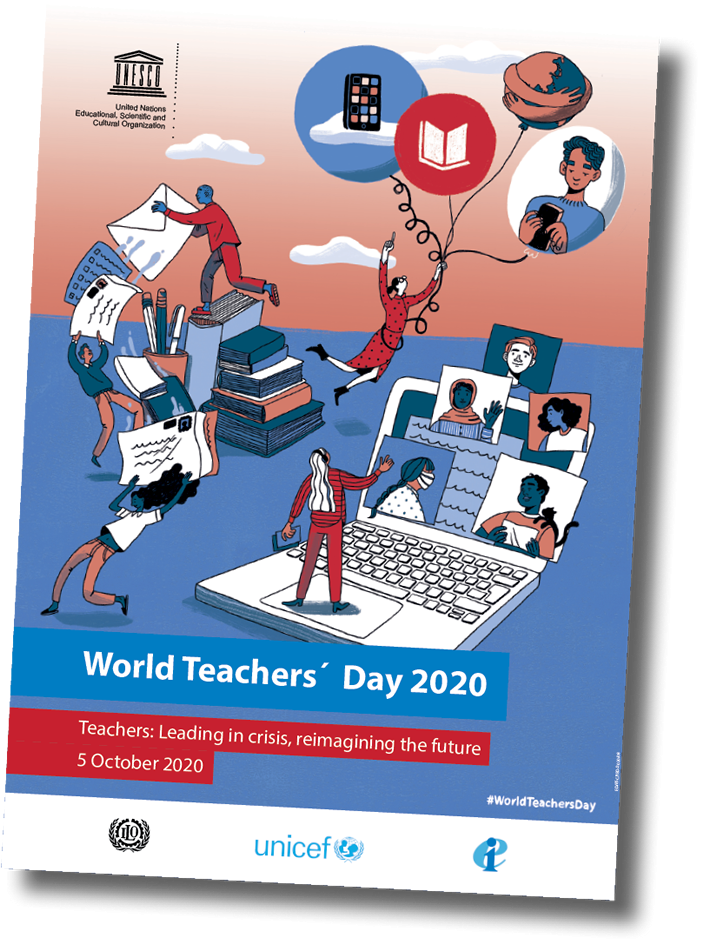
If ever there was a year to appreciate teachers and education workers, it is 2020, writes Angus Hoy.
Since 1994, World Teachers’ Day has been celebrated annually on 5 October, to draw attention to the contributions of teachers in educating their communities and developing a more inclusive and sustainable society, and is co-convened in partnership with UNICEF, the International Labour Organisation and Education International.
In 2020, World Teachers’ Day focused on the theme “Teachers: Leading in crisis, reimagining the future”.
The COVID-19 pandemic has significantly added to the challenges faced by already over-extended education systems throughout the world. It is no exaggeration to say that the world is at a crossroads and, now more than ever, we must work with teachers to protect the right to education and guide it into the unfolding landscape brought about by the pandemic.
An unprecedented event, the COVID-19 pandemic challenges already constrained education systems in various new ways resulting in a revision of how teachers teach and more generally work.
Contributions teachers make in crisis
The issue of teacher leadership in relation to crisis responses is not just timely, but critical in terms of the contributions teachers have recently made to provide remote learning, support vulnerable populations, re-open schools, and ensure that learning gaps in the curriculum are being mitigated.
The chosen theme also considers the role of teachers in building resilience and shaping the future of education and the teaching profession. The COVID-19 crisis created a unique situation for teacher leadership, creativity and innovation to be demonstrated.
New learning environments
Around the world, teachers are working individually and collectively to find solutions and create new learning environments for their students to ensure that learning could be continued.
In most cases without much warning and with little time to prepare, teachers have had to modify or condense the curriculum and adapt lesson plans to carry on with instruction. The move to online learning required capacity for innovation and creativity never before attempted in order to keep children engaged and learning.
UNESCO has commissioned a research project that aims to recognise and celebrate the teaching profession, and also provide resources on teacher leadership through the UNESCO website for teachers and teacher unions in developing countries.
The IEU was invited to participate in this project. Specifically, we nominated 10 members to participate in the research through a survey examining the role of teachers in ‘stepping-up’ to maintain quality education services in times of crisis. As well as asking for comment, the survey used the Australian Teaching Standards as a benchmark and set of descriptors to analyse whether or not, and how frequently, teachers displayed more advanced levels of teacher competence than they would normally have done in ‘non-crisis’ times.
The IEU was also asked to submit a range of our published articles as case studies of our teacher members responding to times of crisis and exhibiting extraordinary leadership in the face of adversity.
The union was proud to be able to provide scores of examples of our members demonstrating core union values of strength, solidarity, compassion and commitment to their communities.
We would like to underscore the extent and depth of our admiration for all of our members, working across all facets of education, who have continued delivering exceptional outcomes during this time of unprecedented stress and difficulty.
We also extend solidarity with the workers across the world who have risen to this challenge and continued to deliver incredible work for the young people in their charge.
Although World Teachers' Day comes only once a year, to us, every day is a day to celebrate the important and powerful work of teachers and education support staff.







































































































































